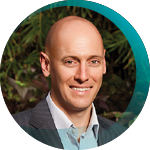National Skin Cancer Action Week 21- 27 Nov
We asked Dr Gavin Sandercoe, FRACS, Plastic & Cosmetic Surgeon at Norwest Private Hospital to answer some common questions about taking care of our skin and sun protection.
How do I protect my skin?
The most important things you can do for your skin are don’t smoke and apply sunscreen.
Why is it so important to start using sun protection when young?
Your skin is damaged by sun exposure over your lifetime, whether or not you burn. The effects of the sun are cumulative so by starting sunscreen early, it will help to keep your skin healthy.
What else can we do to protect our skin?
Always keep hydrated. Your skin ages just like every other organ in your body and it’s very important to look after it. The things that are going to make your skin look terrible when you’re 30, and 40, and 50 and older, is chronic dehydration and sun damage. The damage to your skin, if not looking after it with sun protection will not only have an impact on how your skin looks and feels, but it will also have an impact on your risk of skin cancer.
Why is sun exposure a risk for skin cancer?
Accumulative sun exposure with those little tans that you get all the way through your life are linked to your risk of Basal cell carcinoma and Squamous cell carcinoma. The burns that you get are much more related to risk of having melanoma which is a serious disease which can lead to mortality. Basal and squamous cell carcinoma of the skin are less lethal but may cause disfiguring and scars as a result of removal of lesions.
What type of sunscreen should I use?
The most important thing to look at with sunscreen is the SPF, which stands for Sun Protection Factor and relates to how well that sunscreen blocks out ultraviolet radiation. A sunscreen with SPF 30-50 will provide the best protection. Initially, SPF was related to the amount of UVB that it blocks out but UVA, which is a closely related ultraviolet wavelength, will also damage your skin. “Broad spectrum” sunscreens will provide protection to UVA and UVB.
A water resistant sunscreen is also important. A sunscreen that says broad spectrum SPF 50+ and water resistant means that it will block UVA and UVB rays and it has been tested at 4 hours after application to the skin and been immersed in water.
Is there any treatment for sun damaged skin?
Once your skin has developed some signs of ageing, the options are all about trying to thicken up the deeper layers of the skin. Treatments include Vitamin A and tools like laser and needling, but prevention is always better than the cure.
I have darker skin, so do I still need sun protection?
Yes. The Cancer Council says that the darker your skin is, the more innate protection that you have from the sun and the less likely you are to burn but you still need sunscreen to stop damage from sun exposure. Melanoma may be less likely with darker skin but Basal cell carcinoma and Squamous cell carcinoma are still possible. Age and sun related changes to your skin will still occur if you don’t put sunscreen on regularly.
Does sunscreen need to be applied if sitting in the shade at the beach?
Yes, because you get reflected sun off the ocean and off the sand. Again, the Cancer Council campaign is all about sunscreen; broad brimmed hat – so no caps, they’re great but, there’s no protection for your ears. From a plastic surgeon’s point of view, once you’ve got a cancer on your ears, reconstruction to make them normal again can be difficult.
Besides sunscreen, a hat, finding shade, put on some protective clothing like a rash vest that are very highly sun resistant. And lastly, remember sunglasses. They are not only fashionable but they protect your eyes from sun damage.

Dr Gavin Sandercoe
MBBS, FRACS (Plas)
Plastic & Reconstructive Surgeon
Dr Gavin Sandercoe is a Plastic and Reconstructive Surgeon at Norwest Private Hospital. He is a highly skilled surgeon with experience in dealing with complex problems through his work in a busy trauma centre. This experience has enhanced his skills to perform cosmetic and reconstructive surgery of the face, breast and body.
Gavin’s areas of special interest include body contouring after pregnancy and major weight loss.
Suite 108, Q Central
10 Norbrik Drive
Bella Vista NSW 2153
P 1300 112 358
F 02 8824 3877
W drgavinsandercoe.com.au
